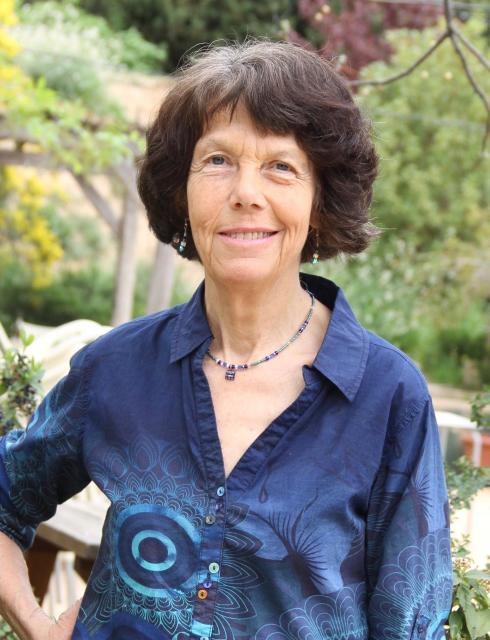

Sections
Highlight

Jennie Rhodes
Friday, 14 June 2019, 10:49
Compartir
Granada-based British writer, Barbara Lamplugh, has recently published her second novel set in Spain; The Red Gene. The book comes four years after Secrets of the Pomegranate, released in 2015.
The story starts in 1936 as Civil War breaks out in Spain. It follows the lives and experiences of Rose, a young English nurse with humanitarian ideals, who decides to volunteer in the Civil War, and of those of Consuelo, a girl growing up in a staunchly Catholic family who have very different values from those of Rose.
Consuelo discovers at a young age that she was adopted. She is unable to find out much about her origins and eventually it is her daughter, Marisol, who is born in the year of Franco's death and growing up in a rapidly changing Spain, who investigates her family's past and finds the answers that her mother has been unable to get.
Lamplugh says of her decision to write a book set during the war, "I wanted to throw light on that dark period of Spanish history that has been largely brushed under the carpet, here in Spain, at least, but has left a strong legacy."
The main inspiration for the book, says Lamplugh, came from the stolen babies scandal which hit the Spanish headlines a few years ago. She met women whose children had been taken from them and also heard heartbreaking stories, like that of the young woman who lost her child when she was forced to become a wet nurse for a rich lady in her village. Inevitably the new mother was unable to produce enough milk to feed both infants and her own son died.
Lamplugh says that she spent two years researching the book, which she adds, was "a more ambitious project" than Secrets of the Pomegranate. This is partly because she had to check historical facts, such as the brands of cigarettes smoked in the 1930s and uniforms of waiters in cafés at that time, as well as details about the way in which malnourished babies were looked after in 20th century Spain.
She also explains how she needed to write the story of Consuelo from a Spanish perspective. "I couldn't have written The Red Gene without having lived here many years and got to know people well enough to have in-depth conversations and to develop a feel for Spanish culture and history, as well as some insight into the Spanish mindset," says the writer, who adds that she feels integrated in Spanish life and has a good level of Spanish.
However, she is keen to point out that while her research involved interviewing older people, she is conscious that many do not want to talk about the war or the dictatorship. Instead of asking direct questions, she explains that she asked about daily life, such as education, food, relationships and festivals.
Barbara Lamplugh is originally from Shropshire and has lived in Granada for 20 years. She has travelled extensively and written books based on her journeys, as well as the two novels set in Spain. Her books can be found in UK bookshops as well as on Amazon.
Publicidad
Publicidad
Publicidad
Publicidad
Reporta un error en esta noticia
Necesitas ser suscriptor para poder votar.